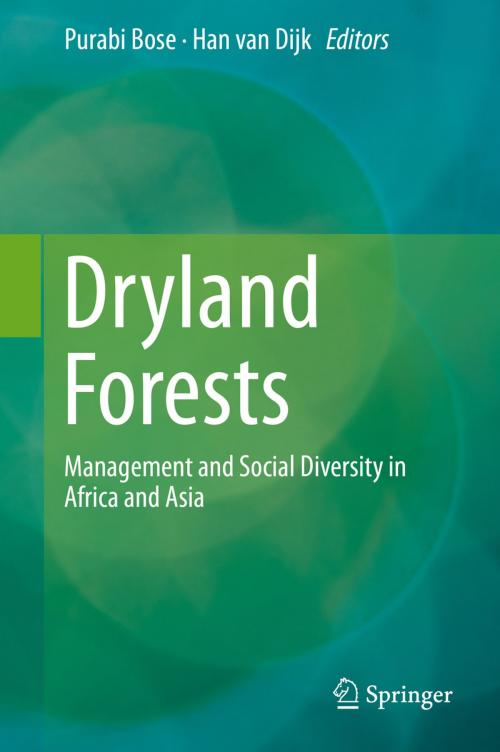Dryland Forests
Management and Social Diversity in Africa and Asia
Nonfiction, Science & Nature, Technology, Agriculture & Animal Husbandry, Science, Biological Sciences, Environmental Science| Author: | ISBN: | 9783319194059 | |
| Publisher: | Springer International Publishing | Publication: | March 8, 2016 |
| Imprint: | Springer | Language: | English |
| Author: | |
| ISBN: | 9783319194059 |
| Publisher: | Springer International Publishing |
| Publication: | March 8, 2016 |
| Imprint: | Springer |
| Language: | English |
This volume provides new insights and conceptual understandings of the human and gender dimension of vulnerability in relation to the dynamics of tenure reforms in the dryland forests of Asia and Africa. The book analyzes the interaction between biophysical factors such as climate variability (e.g. droughts) with socio-political processes (e.g. new institutions and authority) and gender dimensions at various temporal and spatial scales. The book presents a number of case studies based on empirical research on forest tenure reform and it consequences on forest-dependent people. In particular, it highlights the interaction between legal, policy and institutional reform and the inclusion and/or exclusion of local people from deriving benefits from forest resources in the drylands. The book focuses on the questions how land tenure reform and natural resource governance impacts upon marginal groups (along individual, collective and gender dimensions); how do forest-dependent people prepare for and respond to vulnerability; and what is the effect of forest tenure policy reform on the human rights, gender and citizenship issues in relation to the use and management of forest resources and on conflict in forest zones. These issues are approached from the perspective of marginalized groups (gender and social diversity such as indigenous peoples and herders) in vulnerable dryland forests with a high risk of being exposed to climate variability.
This volume provides new insights and conceptual understandings of the human and gender dimension of vulnerability in relation to the dynamics of tenure reforms in the dryland forests of Asia and Africa. The book analyzes the interaction between biophysical factors such as climate variability (e.g. droughts) with socio-political processes (e.g. new institutions and authority) and gender dimensions at various temporal and spatial scales. The book presents a number of case studies based on empirical research on forest tenure reform and it consequences on forest-dependent people. In particular, it highlights the interaction between legal, policy and institutional reform and the inclusion and/or exclusion of local people from deriving benefits from forest resources in the drylands. The book focuses on the questions how land tenure reform and natural resource governance impacts upon marginal groups (along individual, collective and gender dimensions); how do forest-dependent people prepare for and respond to vulnerability; and what is the effect of forest tenure policy reform on the human rights, gender and citizenship issues in relation to the use and management of forest resources and on conflict in forest zones. These issues are approached from the perspective of marginalized groups (gender and social diversity such as indigenous peoples and herders) in vulnerable dryland forests with a high risk of being exposed to climate variability.















